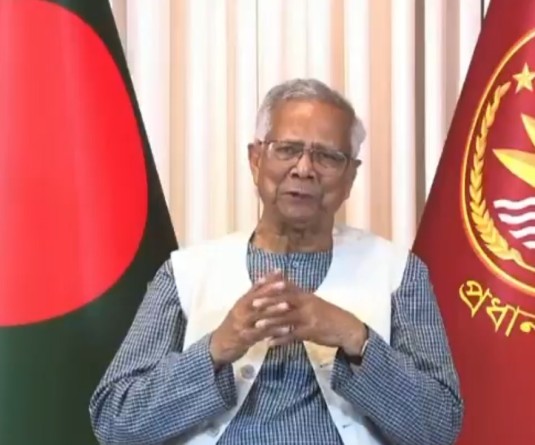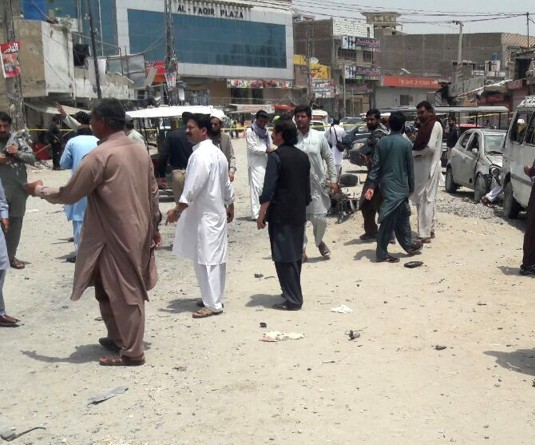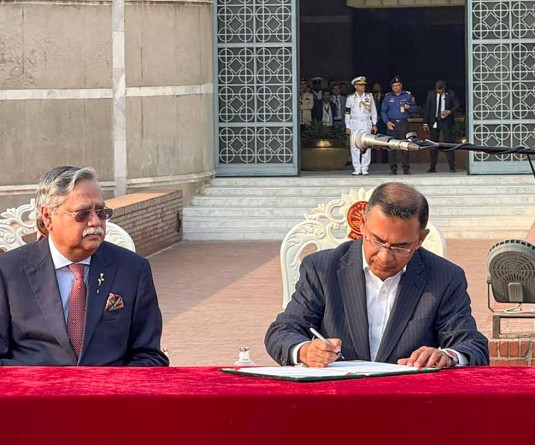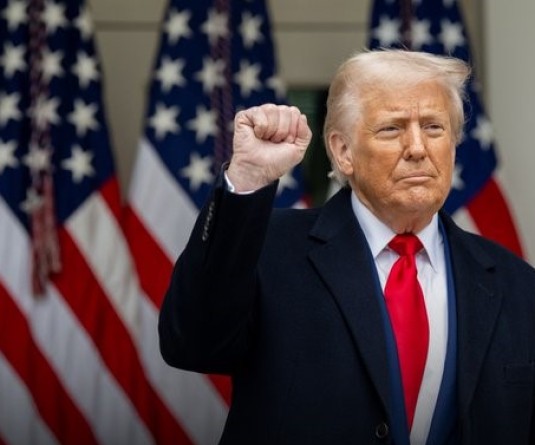PM attends the 22nd Meeting of the Council of Heads of State of the Shanghai Cooperation Organization (SCO), in Samarkand, Uzbekistan on September 16, 2022. (PIB Photo)
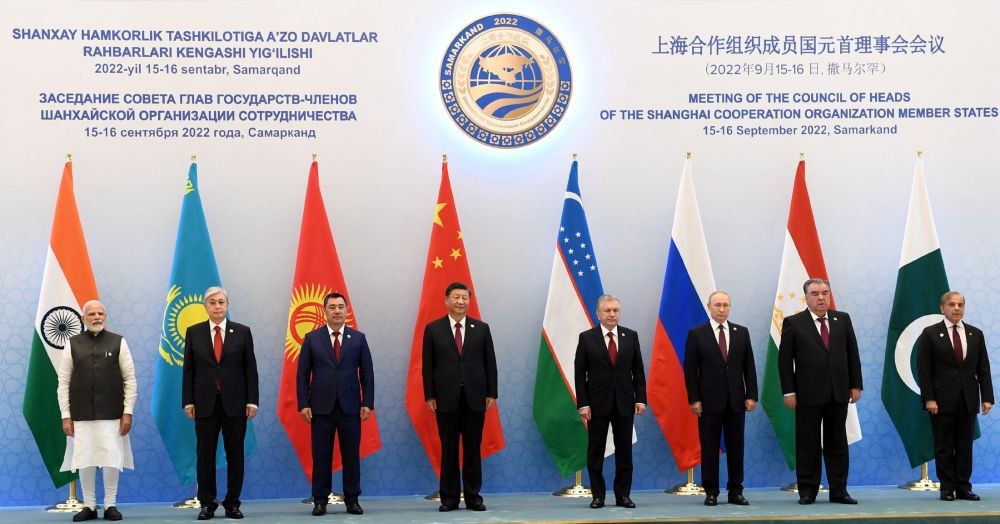
Washington, September 17 (PTI): Indian and Chinese leaders expressing their concerns to the Russian President over the Ukraine war is reflective of the global worries about the effects of Moscow's aggression against the interests of people across the planet, US Secretary of State Antony Blinken has said.
Prime Minister Narendra Modi during a bilateral meeting with Russian President Vladimir Putin on Friday on the sidelines of the annual summit of the Shanghai Cooperation Organisation (SCO) in Uzbekistan pressed him to end the conflict in Ukraine soon, saying "today's era is not of war".
It was the first in-person meeting between the two leaders after the Ukraine conflict began in February.
Modi also underlined the importance of "democracy, dialogue and diplomacy" while calling for an early cessation of hostilities in Ukraine.
The Ukraine issue was also figured out during Putin's meeting with Chinese President Xi Jinping. Putin has told Xi Jinping that he understands China's "questions and concerns" about the war in Ukraine.
"What you're hearing from China, from India, is reflective of concerns around the world about the effects of Russia's aggression on Ukraine not just on the people of Ukraine, devastating as that's been, but on countries and people across the entire planet," Blinken told reporters on Friday at a joint media availability with the Jordanian Foreign Minister Ayman Safadi.
"It's an aggression not just against Ukraine and its people, it's an aggression against the very principles of international relations that help keep peace and security," he said.
Blinken was responding to a question on leaders of China and India expressing their concern about the war in Ukraine directly to Vladimir Putin.
"Do you see this as a significant shift for Russia on the international stage?" he was asked.
Blinken argued that the United Nations Charter should be front and centre.
"The number one violator of the charter right now is Russia. So there are real concerns that, I think, are being heard from countries around the world about that, and, of course, all of the impacts that this is having, including, for example, on food insecurity," he said.
"We've spent a lot of time and a lot of focus in recent months in trying to address the challenges to food security that have been exacerbated dramatically by Russia's aggression. We already had Covid, we already had climate change that was having profound effects on food insecurity. Add to that conflict, we now have well over 200 million people who are severely food insecure," Blinken said.
"This is something that leaders in countries around the world are feeling because their people are feeling it. And so I think what you're seeing is just a manifestation of the fact that this aggression has been an aggression against the interests of people across the planet, and I think it increases the pressure on Russia to end the aggression," Blinken said.
Meanwhile, the mainstream American media on Friday also praised Prime Minister Modi for telling Russian President Putin that this is not the time for war in Ukraine.
The Modi-Putin conversation in the Uzbek city of Samarkand was widely carried by the mainstream American media.
"Today the biggest worry before the world, especially developing countries, is food security, fuel security, fertilisers. We must find ways on these problems and you will also have to consider it. We will get an opportunity to talk about these issues," Modi said in his opening remarks.
"I know today's era is not of war. We discussed this issue with you on phone several times, that democracy, diplomacy and dialogue touch the entire world. We will have the opportunity to talk today about how we can move forward on the road of peace in the coming days," Modi said.
In a statement, the Ministry of External Affairs said the prime minister reiterated his call for an early cessation of hostilities and the need for dialogue and diplomacy in the context of the ongoing conflict in Ukraine.
"Modi rebukes Putin over war in Ukraine," The Washington Post reported in a headline. "In a stunning public rebuke, Modi told Putin: "Today's era is not an era of war, and I have spoken to you on the phone about this," the daily reported.
"The rare reproach showed the 69-year-old Russian strongman coming under extraordinary pressure from all sides," the Post said.
On his part, Putin told Modi that he was aware of India's concerns over the Ukraine conflict and that Russia will do everything possible to end it as soon as possible.
"I know about your position on the conflict in Ukraine. I know about your concerns. I know that you share these concerns and we all want an end to all of these as soon as possible," Putin said in his televised opening remarks at the meeting.
The Russian President said Ukraine has refused to engage in the negotiation process and it wants to achieve its "objectives on the battlefield militarily."
"We will keep you abreast of everything that is happening over there," Putin conveyed to Modi.
The meeting between Modi and Putin was the lead story on the webpage of both The Washington Post and The New York Times.
"India's Leader Tells Putin That Now Is Not an Era for War," The New York Times said in its headline.
"The tone of the meeting was friendly, with both leaders referring to their long shared history. Before Mr Modi made his comments, Mr Putin said he understood India's concerns about the war in Ukraine," the daily said.
"Mr. Modi's comments came a day after President Xi Jinping of China -- in his first face-to-face meeting with Mr Putin since the invasion began -- struck a far more subdued tone than the Russian president, and steered clear in his public comments of any mention of Ukraine," reported the New York Times.
SCO plans to prepare single list of terrorist, separatist and
extremist groups banned on territories of member states
Samarkand, September 17 (PTI): In a bid to combat the security threat posed by militant groups, the members of the Shanghai Cooperation Organisation (SCO) plan to prepare a unified list of terrorist, separatist and extremist organisations whose activities are banned on their territories.
In a joint declaration issued at the end of the annual summit of the eight-member bloc in the historic Uzbek city of Samarkand on Friday, the leaders of the SCO member states, including Prime Minister Narendra Modi, expressed deep concern over the security threat posed by terrorism, separatism and extremism in all its forms and manifestations and strongly condemned terrorist acts around the world.
"The member states, while reaffirming a strong commitment to fight terrorism, separatism and extremism, resolve to continue to take active measures to address the conditions conducive to the spread of terrorism, cut off terrorist financing channels, suppress terrorist recruitment and cross-border movement, counter extremism, the radicalisation of youth, the spread of terrorist ideology, and eliminate sleeper cells and places used as terrorist safe havens," it said.
"In accordance with their national legislation and on the basis of consensus, the member states will seek to develop common principles and approaches to form a unified list of terrorist, separatist and extremist organisations whose activities are prohibited on the territories of the SCO member states," said the Samarkand declaration signed by the leaders of the eight-member grouping.
Briefing reporters, Foreign Secretary Vinay Kwatra said that each of the SCO member states was very very clear in recognising the threat that this challenge poses to the region and beyond.
To counter the threat of chemical and biological terrorism, the SCO members called for the compliance with the Convention on the Prohibition of the Development, Production, Stockpiling and Use of Chemical Weapons. "They stress the importance of the early destruction of all declared stockpiles of chemical weapons," the declaration said.
On the Afghanistan issue, the leaders called for creating an inclusive government in the war-torn country, which is now ruled by the Taliban.
"The member states consider it extremely important to establish an inclusive government in Afghanistan with the participation of representatives of all ethnic, religious and political groups of Afghan society," the declaration said.
The grouping also advocated the formation of Afghanistan as an independent, neutral, united, democratic and peaceful state, free from terrorism, war and drugs.
On Iran, the declaration said that the SCO member states consider the sustained implementation of the Joint Comprehensive Plan of Action on the Iranian nuclear programme important and called upon all participants to rigorously implement their commitments for the full and effective implementation of the document.
It said the impacts of global climate change and the ongoing COVID-19 pandemic pose additional challenges to economic growth, social well-being and food security, as well as to the implementation of the 2030 Agenda for Sustainable Development.
"To this end, new approaches are required to promote more equitable and effective international cooperation and sustainable economic development," it added.
The member states reaffirmed their commitment to a more representative, democratic, just and multipolar world order based on the universally recognised principles of international law, multilateralism, equal, common, indivisible, comprehensive and sustainable security.
The SCO called for creating a transparent international energy market and reducing the existing trade barriers.
It called for the effectiveness of the World Trade Organisation (WTO) as the key forum for discussing the international trade agenda and adopting the rules of the multilateral trading system.
They emphasised the need for early and inclusive reform of the organisation, focusing on its development and adaptation to modern economic realities, as well as effective implementation of monitoring, negotiation and dispute settlement functions, the declaration said.
The SCO, seen as a counterweight to NATO, is an eight-member economic and security bloc and has emerged as one of the largest transregional international organisations. India and Pakistan became its permanent members in 2017.


